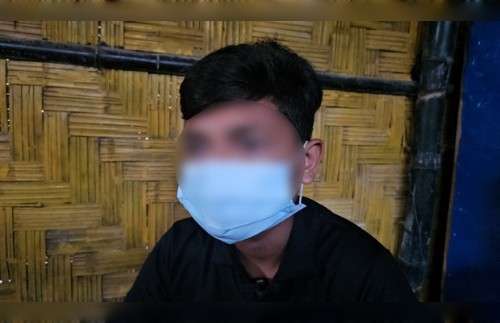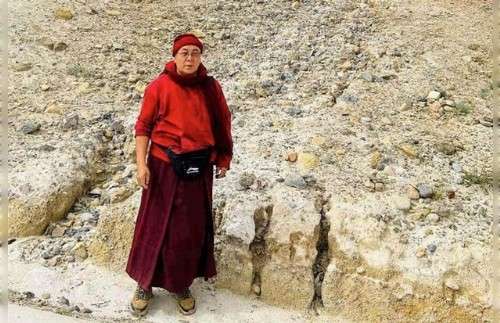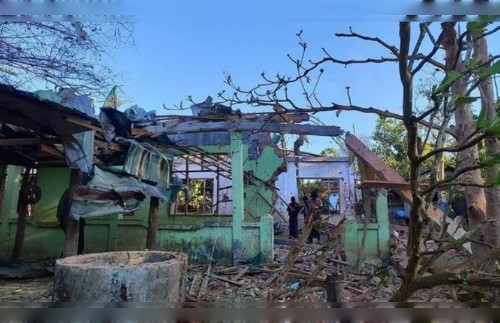The futile escape by seven Uyghurs from a detention center in Thailand’s northeastern region earlier this month has highlighted the plight of the dozens from China’s minority ethnic group who fled the restive Xinjiang region to the Southeast Asian nation more than five years ago.

The seven were recaptured soon after they broke free from a detention cell in Mukdahan province on Jan. 10 – their second attempted escape – and their action could land them in jail for two years.
They are among 50 Uyghurs being held in immigration centers and prison in four locations in Thailand – remnants of a group of about 350 who fled to Thailand in 2014 following repression in Xinjiang.
A bomb blast at a Hindu shrine in Central Bangkok weeks after the repatriation killed 20 and injured 120 more, and was linked by the Thai police chief at the time to Uyghur militants who sought to avenge Bangkok’s action. Two Uyghur men were arrested and pleaded not guilty.
“They are now in Mukdahan prison after being charged with escaping from immigration custody,” police Lt. Col. Udon Chaokaek told BenarNews. “We forwarded the case file to the court already. We prosecuted them because they did break from immigration cell for a second time.”
This latest incident creates a dilemma for Thailand: What to do with the 50 Uyghurs.
Sending them back to Xinjiang where they could be punished will trigger criticism from human rights groups.
Authorities in China’s Xinjiang Uyghur Autonomous Region have held up to 1.5 million Uyghurs and other Muslim ethnic minorities accused of harboring “strong religious views” and “politically incorrect” ideas in internment camps since April 2017.
U.S. Secretary of State Mike Pompeo has described Beijing’s actions in Xinjiang as a humanitarian crisis that is “on the scale of what took place in the 1930s” in an apparent reference to the policies of Hitler’s Germany and Stalin’s Soviet Union. He also called the incarcerations “the stain of the century.”
Keeping the Uyghurs in Thailand indefinitely will also strain government resources.
It “highlights the Catch-22 situation the country has been caught in for many years with this minority Muslim group from China. It’s high time to find an acceptation solution,” a leading Thai daily, The Bangkok Post, said last week in an editorial.
It urged the government of Prime Minister Prayuth Chan-o-cha to identify a third country willing to take in all the Uighur detainees.
“Beijing may frown on the idea, but Thailand, as a sovereign state, should have the right – as well as the courage – to make this decision,” said the editorial entitled “Don’t kowtow over Uighurs.”
In 2015, Thailand drew criticism when it forcibly repatriated 100 of the 350 Uyghurs detained in the country to China despite fears they could be punished on their return.
A bomb blast at a Hindu shrine in Central Bangkok weeks after the repatriation killed 20 and injured 120 more, and was linked by the Thai police chief at the time to Uyghur militants who sought to avenge Bangkok’s action. Two Uyghur men were arrested and pleaded not guilty.
“In reality, Thailand cannot want to send them anywhere – not to China because it is scared of a similar bomb attack like the one on the Erawan Shrine in 2015 and international condemnation,” Chalida Tajaroensuk, the director of People’s Empowerment Foundation, a Thai NGO which has helped Uyghurs in Thailand since 2014, told BenarNews. “Not to Turkey because Chinese officials keep checking on all detained Uyghurs every month.”
Chalida, who had visited the seven escapees recently, suggested that they fled the cell because they lived under poor conditions.
“They said they broke the immigration detention cell because it is too cramped and unhealthy and had just one window. They did not see the sun or the moon for almost four years,” she told BenarNews.
She noted that the Uyghurs came to Thailand with the intention of going to Turkey via Malaysia.
A little more than a year ago, the Malaysian government defied China by releasing 11 Uyghurs who had fled to Malaysia from Thailand after escaping from a prison in November 2017 and allowing them to travel to Turkey.
Beijing had sought their repatriation but Malaysian Prime Minister Mahathir Mohamad said the men had broken no laws.
As for those still in Thailand who have been detained for almost six years, “it seems unreasonable and illogical to keep these Uyghurs behind bars any longer,” the Bangkok Post editorial said.
“Don’t forget that the only laws they breached on setting foot in Thailand were those involving immigration, and they have done their time.”
Nontarat Phaicharoen in Bangkok contributed to this report.
Copyright ©2015,BenarNews. Used with the permission of BenarNews https://www.benarnews.org/english/
Escaping from Scam Center on Cambodia’s Bokor Mountain
UN Security Council Meets to Discuss Children and Armed Conflict
10 Shocking Revelations from Bangladesh Commission’s Report About Ex-PM Hasina-Linked Forced Disappearances
Migration Dynamics Shifting Due to New US Administration New Regional Laws
UN Security Council Meets to Discuss the Maintenance of International Peace and Security and Artificial Intelligence
Winter Brings New Challenges for Residents living in Ukraine’s Donetsk Region
Permanent Representative of Israel Briefs Press at UN Headquarters
Hospitals Overwhelmed in Vanuatu as Death and Damage Toll Mounts from Quake
Subscribe Our You Tube Channel
Fighting Fake News
Fighting Lies


















